As she orders her soy milk cappuccino, debating whether to treat herself to chocolate on top, Holly Throsby acknowledges that “all three of the books I’ve written are about topics which are quite morbid’’.
In the singer and writer’s celebrated first novel, Goodwood (2016), the residents of a regional town are rattled when two locals vanish within a week of each other, while her second book, Cedar Valley (2018), offers a literary twist on Adelaide’s Somerton Man mystery.
Throsby’s latest novel, Clarke, is, like her previous books, set in the “small fictional universe” of southern NSW’s Gather region, and is structured around a 1991 police search for the remains of a woman who has been missing for six years. While the grim mechanics of that backyard search – a shrieking concrete saw, blinding floodlights, a neighbour’s panicked attempts to keep a curious four-year-old away from the digging – loom large, Throsby says the novel, to be released on November 1, is ultimately “quite an optimistic story”.
“I’m not interested in writing an altogether bleak, morbid novel where it feels very heavy,’’ says the five-time ARIA nominee and member of female indie folk group, Seeker Lover Keeper. “I want to create stories that people want to go into for positive reasons, even though there might be a lot of darkness in there.’’
An at times “extreme” homebody, Throsby is speaking to Review during a day away from her home on the NSW South Coast at a beachfront cafe in Sydney’s Coogee. She has small, subtle tattoos on her forearms and her reed-thin figure is almost swamped by an oversized brown shirt. She is photogenic, and in our influencer-obsessed era, her lack of concern with projecting a glamorous image is surprising and refreshing – the mother of two arrives for Review’s photo shoot without makeup and with her hair apparently uncombed, in a just-got-out-of-bed rather than artfully messy way.
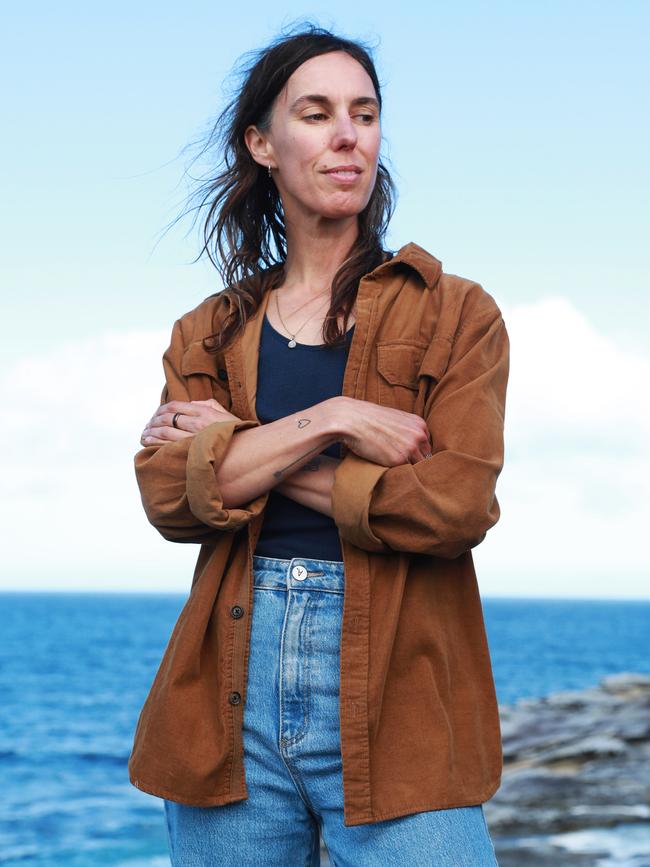
She says that as she wrote Clarke – the name of the regional NSW town where the police search occurs – she avoided the “backwoods Gothic’’ tropes that often define rural and regional locations as desolate or dangerous places you would never want to visit.
“Australia has a really rich amount of noir-style outback crime that is quite bleak. I did want to create something a bit different from that,’’ she explains.
Indeed, an old-timey neighbourly vibe is a defining characteristic of the titular town, as residents help each other through family traumas and discuss the police dig over backyard fences, in their kitchens and at their workstations. As the narrative tone shifts between wry comedy and something darker and flintier, the residents’ gossip and speculation is underscored by their concern for the missing woman, Ginny Lawson, who had been a doting mother before she disappeared in 1985.
“This is not a police procedural at all. It’s more of a Neighbourhood Watch procedural,’’ jokes Throsby with a light, breathy laugh that reminds me of her singing voice, which critics have described as “fragile and eloquent”.
What gave her the idea of structuring a novel around a backyard dig for a dead body? She says her book was partly inspired by The Australian’s podcast on the Chris Dawson murder case, The Teacher’s Pet. In one episode of the Gold Walkley Award-winning podcast, “they were talking about the search that was happening at the time for Lynette Dawson’s body at the Bayview house she and her husband (Chris Dawson) used to live in’’.
Throsby wondered “how it would feel to have police arrive and not know that you were living in the house that had this particular history. How would you respond?’’ In the novel, she uses that question “as a kind of springboard, focusing in on this micro-community of those few houses (near the search site). It goes out in concentric circles from there to the whole town and explores how an unsolved case of someone who’s missing in inverted commas, can haunt that community.’’
The Teacher’s Pet podcast is, of course, a remarkable cultural phenomenon. Driven by host Hedley Thomas’s campaigning reporting, it has been downloaded globally more than 50 million times and is seen as the catalyst that led to the reinvestigation and murder trial of ex-Sydney teacher Chris Dawson, after years of official inaction over the disappearance of his wife, Lynette.
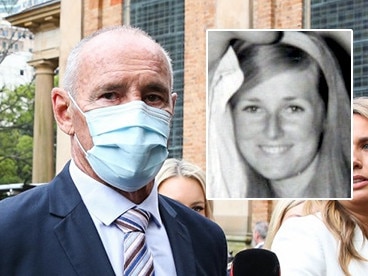
In September, Dawson was convicted in the NSW Supreme Court of killing Lynette 40 years ago. (This month, the convicted killer lodged the paperwork for an appeal.)
Throsby’s novel features characters far removed from the inner city indie music scene where she made her name – her protagonist, Leonie, is a regional travel agent who never travels, while Barney is the late middle-aged tenant of the Clarke home that is being dug up by the police. He is in mourning for the lost, ordinary life he once shared with his wife and son, and has no idea his backyard, with its multiple layers of concrete, may have been the scene of a serious crime.
However, Leonie had told police about her fears for her neighbour, Ginny Lawson, in 1985, when the young mother had been missing from her home for 17 days. Leonie had overheard terrible rows between Ginny and her husband Lou Lawson – a physiotherapist, hunter and popular figure in Clarke – just before Ginny vanished. She is dismayed when the police ignore her concerns, as they lean towards Lou Lawson’s theories his wife had committed suicide or joined a cult.
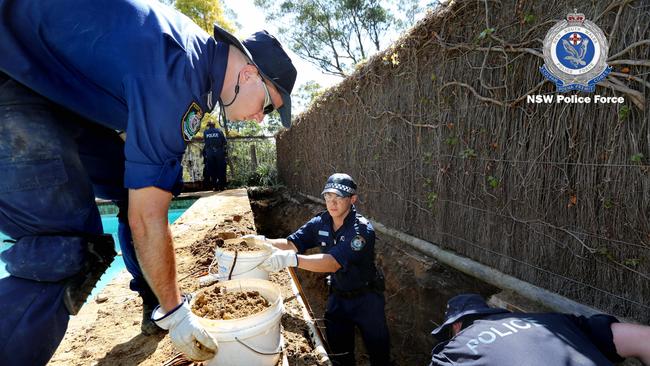
Clarke is set in 1991: Operation Desert Storm is under way, Bob Hawke is prime minister, and people have long chats on their landlines and go to travel agencies to book their holidays. Although a work of fiction, it has notable similarities to and differences with the Dawson case.
Throsby says the manuscript was “totally finished” before Chris Dawson was convicted. This did not present tricky legal issues for her, she says, because the fictional Lou Lawson “was not him at all’’. It’s a story “based on a real, live event – there are hundreds of novels that do that’’. On the other hand, when speaking about her characters’ surnames – Lawson conspicuously rhymes with Dawson – she says pointedly: “Don’t think that wasn’t deliberate that they do rhyme.’’
A feature of the Dawson case that interests her was “how sadly similar it is to so many cases that I’ve read about before and since, where you have a combination of domestic violence – which is seen to be a private issue and not a criminal offence – and where you see police just not taking it seriously.’’ While she hopes the recent debate about coercive control will “lead to a change in police culture’’, in her novel, “we are talking about regional Australia in 1991. We know it would have been completely common for police to just look the other way.’’
Throsby’s writing is infused with deep compassion for her characters, from their dry humour to the baked-in sadness they rarely express. Leonie is raising her charming but exhausting four-year-old nephew, and stoically nursing a gaping emotional wound, while Barney is so lonely, he drives to the local McDonald’s and watches his estranged son working behind the counter from his car.
“He really kills me,’’ Thorsby says. “I really felt for him so much.’’ Ultimately, the novel is as much about the potential of friendship and community bonds to draw people out of isolation and grief, as it is about the disappearance of Ginny Lawson.
Throsby is a podcast devotee and her research for Clarke was informed by psychiatrist Daniel Siegel’s books and podcasts about how brain injuries can change patients’ personalities, and conversations with a retired police officer about what a 1991 police search for a body would have entailed. Preschooler Joe’s dialogue is at once out of the box and completely natural and she says “both my children certainly provided inspiration for Joe’’.
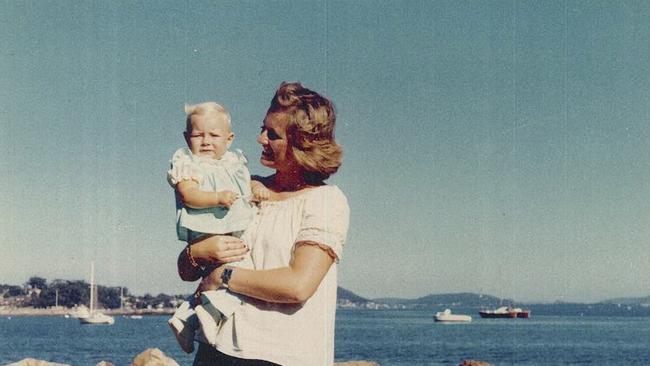
The author and her family moved from Sydney’s inner west to south coast NSW in 2019. “I was such a city person. I didn’t really imagine myself moving out of the city particularly,’’ she says.
The daughter of just-retired ABC radio presenter Margaret Throsby, she grew up in the gentrified inner Sydney suburb of Balmain. She wrote her first song aged 10 – endearingly, it was about traffic lights. These days, her compositions are described as “delicate and painterly”.
She says Clarke’s neighbourly values reflect her own experience of living on the NSW south coast, “which I find so adorable. It probably comes off the page. Old-fashioned notions of community I find very appealing.’’
The indie artist has released five solo albums and two albums with Seeker Lover Keeper, and has been nominated for five ARIAs, so it is surprising to hear her say that performing does not always come naturally to her.
Next month, she will perform with Seeker Lover Keeper bandmates Sarah Blasko and Sally Seltmann at the Queenscliff Music Festival and Castelmaine in Victoria. (These shows were booked for 2019 and cancelled because of the pandemic. )
“When I’m on stage and I feel like I’m doing a good job of it, it feels as if it comes naturally,’’ she says of appearing in front of the footlights. But when it comes to solo tours, “when I haven’t been doing it for a long time, it feels completely foreign and I don’t want to at all and I’d much rather stay at home. I don’t think I’m a born performer at all.
“I feel like writing novels in a room by myself suits my sensibilities a lot better in a lot of ways, but then there’s nothing like the feeling of doing a good show. It kind of competes in my mind – there’s a bit of a tension in my mind between the two. But if I can do both, then I feel very lucky.’’
Her partner, Zoe, is a landscape gardener; Zoe was playing bass in a band when the couple met and they still jam with the kids, Alvy, 8, and June, 2. Throsby says wrangling young children, their pup Wallis (named for Wallis Lake, not Wallis Simpson), and the deep thinking required for writing a novel is “an incredible challenge ... You need to prioritise and focus a lot more on cue.
“I need to structure my work time more specifically and when I am working, concentrate very deeply – no phones, nothing open on the browser.
“My partner Zoe was incredibly supportive as well throughout Covid because she basically homeschooled Alvy (when schools pivoted to online learning), while I wrote. She did 90 per cent of the home schooling so I could write, which I’m very grateful for.’’
She doesn’t hanker for the buzz and bustle of the city. “As a family ... we’re either extreme homebodies or we want to be in nature. I kind of want to be in the bush, at the beach or at home. Occasionally I love going to a fancy restaurant or a bar but I just rarely do it, so it really suits us better to live where we’ve got access to 15 bushwalks and a number of beaches. I just really love the feeling of having that space.’’
She switched gears from music to fiction and wrote Goodwood – which critics described as “captivating” and “big-hearted” – because “of a restlessness. I felt a little like I didn’t have any songs at that point, and I felt like I always wanted to have more space for words than songs offered, because the structure is very dictated by the melody and the idea of a blank page was exciting.’’
She adds that “I didn’t know how to write fiction at all and I really just learned through the process of doing it’’. Evidently, she was a fast learner – Goodwood was short-listed for a slew of prizes including the Ned Kelly Award and two Australian Book Industry Awards. Still, the blank page can be intimidating and she admits she can “lack confidence”. Publishing consultant Richard Walsh – in his youth, the co-founder of underground magazine Oz – has been an invaluable mentor and friend to her: “He’s been really, really necessary for me to get through all of the books.’’ She laughs as she says that at times “I need a talking to. He gives me very wise counsel all the time.
“It’s very difficult when you’re writing a novel. It’s such a solitary pursuit and such a long, sustained one. It’s very difficult to know if what you’re doing is any good. It’s a marathon.’’ In contrast, she says she has written some of her “best” songs in 15 minutes once she has grasped the melody.
Her last solo album, After A Time, was released in 2017 and she has another almost ready to roll. “I have an album worth of songs that I have written that I want to record, so I will do another record,’’ she reveals.
Her bandmate Blasko has been engaged to read the audio book of Clarke. “She has a great speaking voice, let me tell you. She speaks as well as she sings,’’ Throsby says.
In her acknowledgments in Clarke, Throsby writes: “Although this book is entirely a work of fiction, my sympathies are with Lynette Dawson, her family and friends.’’ When asked how she reacted to Chris Dawson’s conviction, she responds: “I thought the detail within the judgment was really impressive, as well as the way the judgment balanced the problematic aspects of the case.’’
Lynette Dawson’s body has not been recovered and there were no witnesses to her murder. Throsby notes how NSW Supreme Court Justice Ian Harrison balanced these factors with “the way that Chris Dawson’s story made so very little sense’’. For the singer and author, “there was something very human about the judgment … I guess to me, it felt sort of obvious but I was slightly surprised at the same time that the right thing happened.’’
Clarke, by Holly Throsby, Allen & Unwin, $32.99, is released on Tuesday

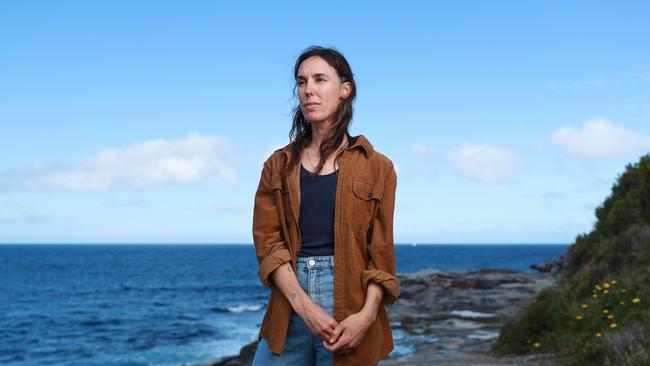

Rosemary Neill is a senior writer with The Weekend Australian's Review. She has been a feature writer, oped columnist and Inquirer editor for The Australian and has won a Walkley Award for feature writing. She was a dual finalist in the 2018 Walkley Awards and a finalist in the mid-year 2019 Walkleys. Her book, White Out, was shortlisted in the NSW and Queensland Premier's Literary Awards.
Add your comment to this story
To join the conversation, please log in. Don't have an account? Register
Join the conversation, you are commenting as Logout